- [email protected]
- (619) 304-4004
Explore the dynamic world of Medical Marijuana in New York, a groundbreaking blend of public health, social justice, and economic innovation. Dive into our blog for the latest insights and developments in this evolving landscape, where health meets policy in the Empire State.
Medical Marijuana in New York
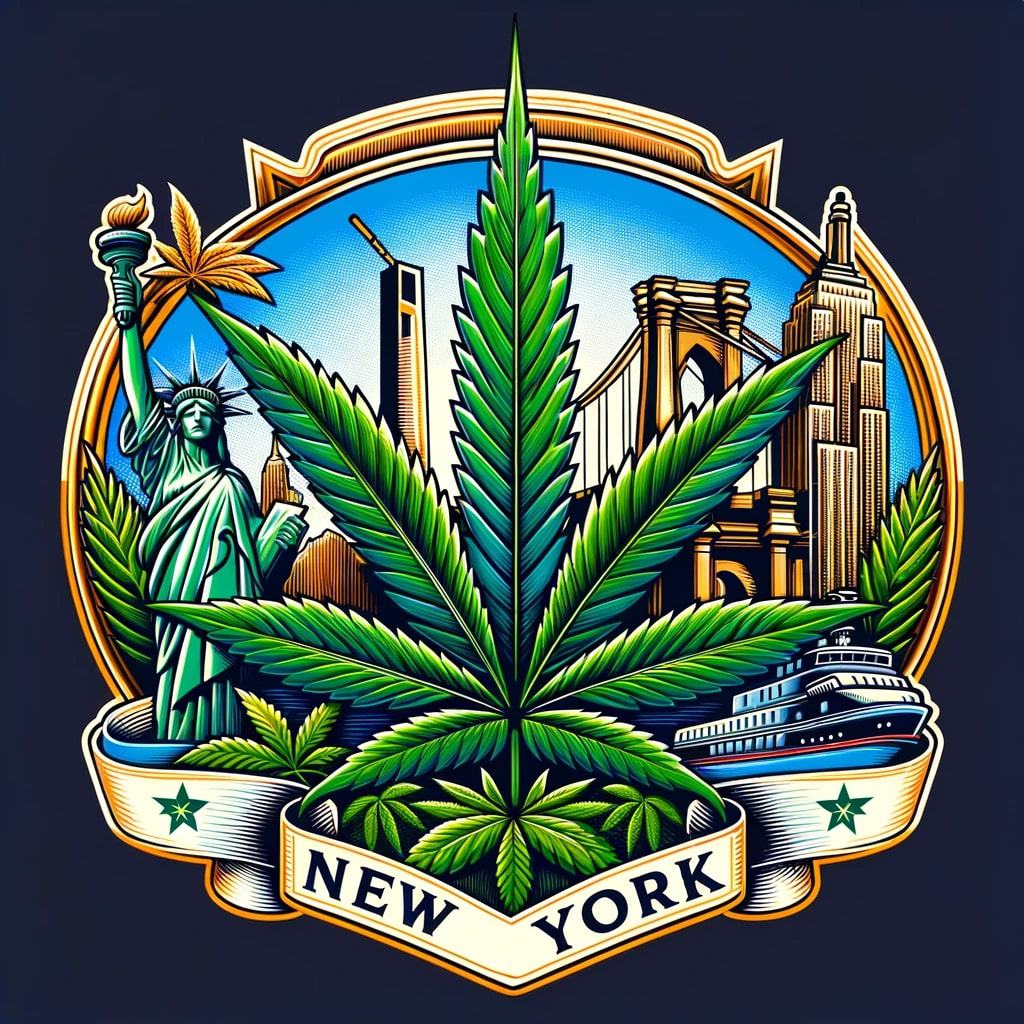
Medical Marijuana in New York represents a significant shift in public health policy, balancing social justice, safety, and economic development. The Marijuana Regulation and Taxation Act, a pioneering framework within the state, oversees the comprehensive regulation of medical, adult-use, and cannabinoid hemp.
This act not only establishes a robust social and economic equity program, actively encouraging participation from communities historically impacted by prohibition policies, but also administers a sophisticated quality assurance structure.
This includes standards for production, manufacturing, strict product testing, labeling, packaging, and advertising, ensuring safer products that are not targeted towards youth.
Furthermore, the act fosters economic development by encouraging small businesses and farmers to engage in the cannabis industry, introducing license types like microbusiness, cooperative, and delivery.
This regulatory approach reflects New York’s commitment to public health, safety, and social justice, while also opening new economic avenues. As the landscape of medical marijuana in New York evolves, it’s crucial for residents to stay informed about these changes and understand how they impact both individual and community health.
This blog offers a deep dive into these aspects, providing readers with the latest information and insights into the world of medical marijuana in New York.
Medical marijuana involves using the cannabis plant and its derivatives to treat health issues and alleviate symptoms. In New York, it’s regulated under the Marijuana Regulation and Taxation Act.
This groundbreaking law in the U.S. creates a balance between public health, social justice, and economic growth. The use of medical marijuana in New York follows strict guidelines to ensure it’s used correctly for therapeutic purposes.
Medical marijuana interacts with the endocannabinoid system (ECS) in our bodies. This system is crucial for maintaining balance and regulates functions like pain, mood, appetite, and memory.
The main active compounds in medical marijuana, THC and CBD, bind to cannabinoid receptors in the brain and other body parts.
This helps alleviate symptoms of various conditions like chronic pain, epilepsy, and multiple sclerosis by changing how neurotransmitters are released in the brain.
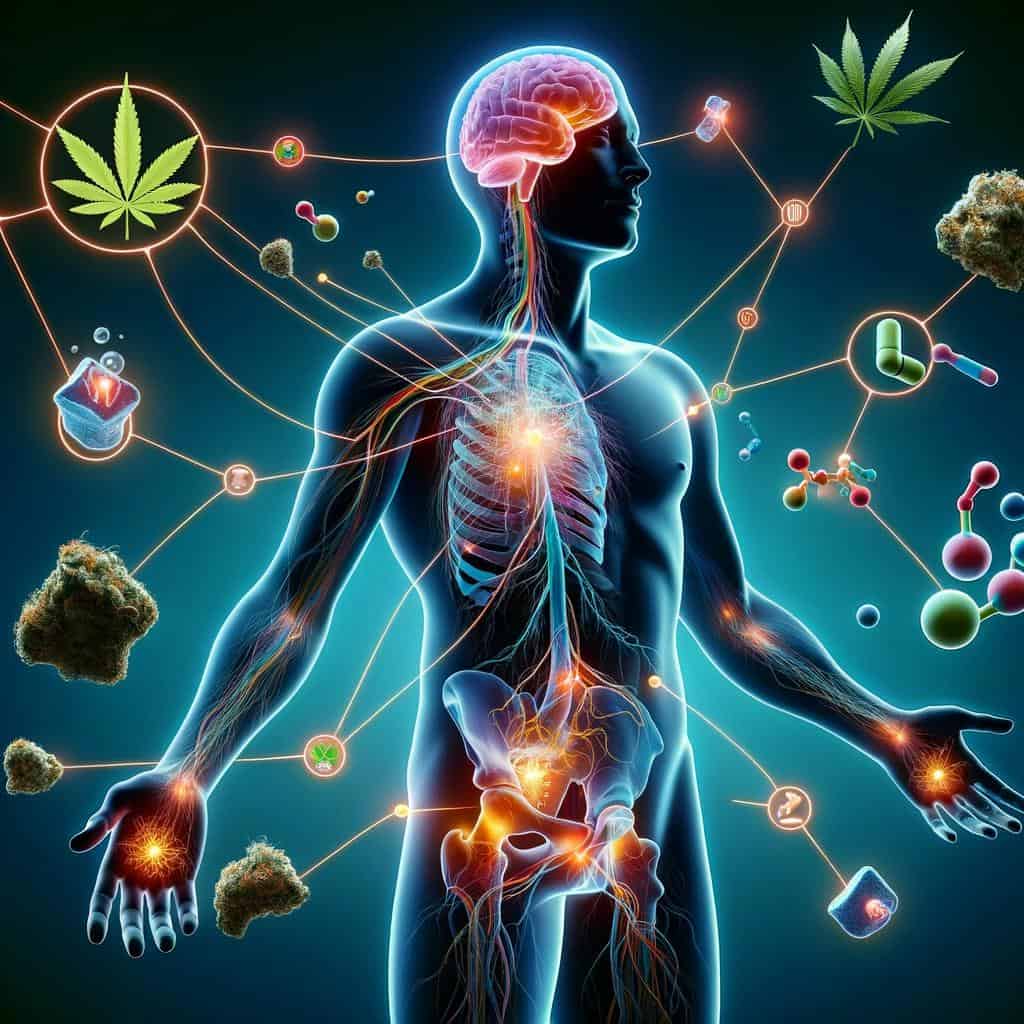
The primary components in medical marijuana are cannabinoids, specifically THC and CBD. THC is responsible for the psychoactive “high” and has benefits like pain relief and reducing nausea.
CBD doesn’t cause a high and is known for reducing inflammation, anxiety, and seizures. In New York, medical marijuana products are rigorously regulated for quality and safety.
This includes strict production and testing standards. Such regulation ensures patients get a consistent, safe product with clear labels on THC and CBD content.
The Office of Cannabis Management in New York oversees these regulations, ensuring medical marijuana products are safe and not aimed at young people.
This careful regulation shows New York’s commitment to public health and safety, acknowledging the therapeutic benefits of cannabis for those who are registered.
New York’s approach to medical marijuana is governed by the Marijuana Regulation and Taxation Act. This act is a significant piece of legislation in the U.S., overseeing everything from the licensing to the sale and taxation of medical marijuana, as well as adult-use cannabis and cannabinoid hemp.
The guidelines in New York for medical marijuana are structured to ensure responsible and medically justified use. To qualify, patients must have a state-recognized medical condition, such as chronic pain or cancer.
They need MMJ certification in New York from a registered healthcare provider and must be New York residents. The state maintains a registry for patients and caregivers, with dispensaries operated by registered organizations.
These dispensaries adhere to strict standards, ensuring the safety and quality of products. The law allows various forms of medical marijuana, like tinctures and oils, but prohibits smoking.
The evolution of medical marijuana laws in New York reflects a significant shift towards more progressive healthcare policies. Here’s a brief overview:
These changes reflect New York’s commitment to adapting its healthcare laws to better serve the needs of its residents, acknowledging the therapeutic potential of cannabis while ensuring regulated and safe access.
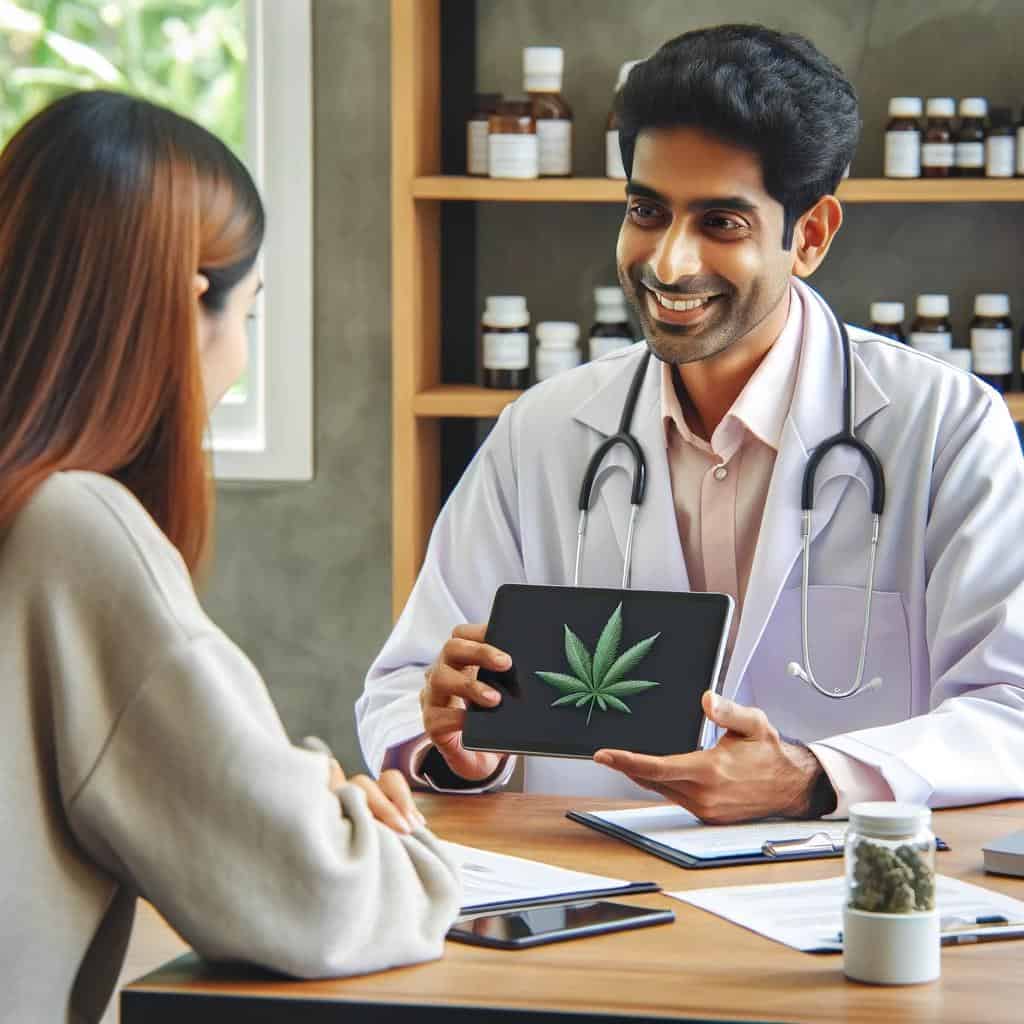
In New York, accessing medical marijuana is a process governed by specific regulations and guidelines to ensure both compliance and safety.
The state’s approach is structured to provide eligible patients with access to medical marijuana for therapeutic purposes, under the oversight of the Marijuana Regulation and Taxation Act.
Eligibility for medical marijuana in New York is determined by a set of criteria. Patients must have a qualifying medical condition as recognized by the state. These conditions include, but are not limited to, chronic pain, cancer, and PTSD.
To access medical marijuana, patients must obtain a certification from a healthcare provider registered with the New York State Medical Marijuana Program.
Additionally, patients must be residents of New York State and have a valid patient ID to participate in the program.
Once a patient is deemed eligible, obtaining medical marijuana involves several steps. First, the patient must be certified by a registered healthcare provider.
Once a healthcare provider certifies a patient for medical marijuana use, the patient is automatically registered in the New York State Medical Marijuana Program. This certification includes a unique patient ID number. With this ID and a valid government-issued photo ID, patients can legally purchase medical marijuana from any registered dispensary operated by registered organizations throughout New York State.
These dispensaries provide various forms of medical cannabis products, ensuring that patients have access to the type of medication best suited for their condition.
The state ensures that these products meet strict quality assurance standards, including production, manufacturing, and product testing, to guarantee safety and efficacy for consumers.
In context, accessing medical marijuana in New York is a structured process designed to ensure that eligible patients can safely and effectively use medical marijuana for therapeutic purposes.
The state’s comprehensive regulatory framework, overseen by the Office of Cannabis Management, ensures that medical marijuana is used responsibly, with a focus on public health and safety.
In New York, medical marijuana usage is governed by specific regulations and guidelines, ensuring that it serves its intended therapeutic purposes for various health conditions.
Medical marijuana in New York is commonly used to manage and treat a range of medical conditions. These include chronic pain, which is one of the most cited reasons for medical marijuana use.
It’s also used for conditions like cancer, where it can help alleviate the side effects of chemotherapy such as nausea and loss of appetite.
Patients with neurological conditions such as epilepsy and multiple sclerosis also benefit from medical marijuana, as it can help reduce seizures and manage pain and muscle spasticity.
Additionally, medical marijuana is used for mental health conditions like PTSD, where it can help in managing anxiety and improving sleep patterns.
The impact of medical marijuana on patient health can be significant. For chronic pain sufferers, it offers an alternative to opioid painkillers, which have a high risk of dependency and side effects.
Medical marijuana has been found to be effective in reducing chronic pain and improving quality of life. In cancer patients, it helps in managing pain and the debilitating side effects of chemotherapy.
For neurological conditions, medical marijuana’s ability to reduce seizures and muscle spasticity can greatly improve patient mobility and quality of life.
In terms of mental health, medical marijuana provides a therapeutic option for managing symptoms like anxiety and insomnia, which are common in conditions like PTSD.
Medical marijuana in New York is used for a variety of health conditions, offering significant benefits in pain management, symptom relief, and overall quality of life improvement.
In New York, the regulation and safety of medical marijuana are taken very seriously, with a comprehensive framework in place to ensure that medical cannabis is used responsibly and effectively for therapeutic purposes.
Medical marijuana in New York is regulated under the Marijuana Regulation and Taxation Act. This act establishes a comprehensive regulatory structure for overseeing the licensure, cultivation, production, distribution, sale, and taxation of medical marijuana.
The Office of Cannabis Management administers this regulatory framework, ensuring that all aspects of medical marijuana, from cultivation to consumption, adhere to strict standards.
This includes overseeing the registration of patients and caregivers, licensing of dispensaries and growers, and ensuring that all medical marijuana products meet stringent quality control standards.
The act also includes provisions for social and economic equity, aiming to ensure that the benefits of the medical marijuana industry are accessible to all communities, particularly those historically impacted by drug prohibition policies.
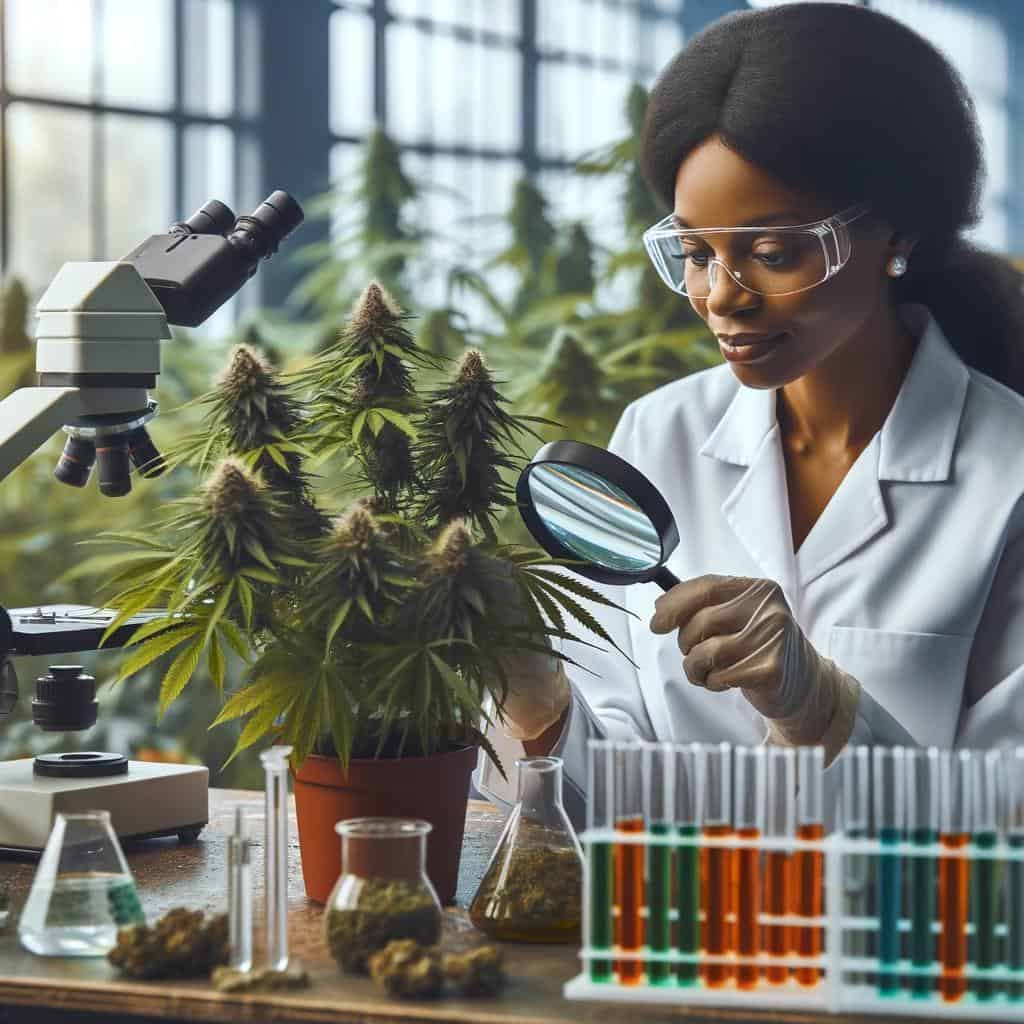
Safety measures for medical marijuana use in New York are robust and multifaceted. These measures include strict product testing, labeling, packaging, and advertising standards to ensure that products are safe for consumers and not targeted to youth.
Dispensaries are required to provide clear information about the THC and CBD content of their products, along with other cannabinoids and terpenes present, allowing patients to make informed decisions about their treatment.
Additionally, the state has implemented quality assurance regulatory structures, including standards for production and manufacturing, to ensure the safety and efficacy of medical marijuana products.
These safety measures are designed to protect patients, ensuring that they receive high-quality, safe, and effective medical cannabis for their therapeutic needs.
The introduction and regulation of medical marijuana in New York have significant social and economic implications, influencing everything from public health to economic development and social equity.
Medical marijuana plays a crucial role in advancing social justice in New York. The state’s Marijuana Regulation and Taxation Act includes provisions that address the historical impact of drug prohibition policies on communities.
This act establishes a social and economic equity program, actively encouraging participation from communities disproportionately affected by previous drug policies.
By providing access to medical marijuana and opportunities in the cannabis industry, New York aims to rectify past injustices and promote social equity.
This approach recognizes the importance of inclusive policies that ensure all communities, especially those that have been marginalized, benefit from the medical marijuana industry.
The economic impact of medical marijuana in New York is substantial. The regulated cannabis industry not only generates significant tax revenue for the state but also creates numerous job opportunities.
By establishing a regulated market, New York has opened doors for small businesses and farmers, including the creation of microbusiness, cooperative, and delivery license types. This diversification in the cannabis industry contributes to economic development and growth.
Additionally, the regulation and taxation of medical marijuana provide a new source of revenue, which can be reinvested in public services and community development.
The economic benefits of the medical marijuana industry extend beyond direct sales, influencing sectors like agriculture, retail, and healthcare.
Navigating the medical marijuana certification process in New York involves a few straightforward steps:
Remember, the certification is valid for a specific period, typically one year, after which it will need to be renewed. The process emphasizes safe and legal access to medical marijuana, aligned with New York’s health regulations.
The landscape of medical marijuana dispensaries in New York is carefully regulated, ensuring safe and legal access to medical cannabis for registered patients.

In New York, medical marijuana dispensaries are authorized and regulated by the state’s Department of Health. These dispensaries are operated by registered organizations that have met stringent state requirements for the sale of medical cannabis.
These organizations are responsible for the cultivation, production, and distribution of medical marijuana products, ensuring they adhere to the highest standards of quality and safety.
The list of authorized dispensaries is available on the New York State Department of Health’s website, providing transparency and ease of access for patients.
Patients looking to find the nearest medical marijuana dispensary in New York have several resources at their disposal:
Patients are encouraged to use these resources to find a dispensary that is not only conveniently located but also suits their specific medical needs. It’s important for patients to ensure they visit only state-authorized dispensaries to guarantee the safety and legality of their medical marijuana purchases.
Understanding the legal framework surrounding medical marijuana use in New York is crucial for patients and employers alike, ensuring compliance with state laws and regulations.
Can Employers Discriminate Against Medical Marijuana Users in New York?
Where is it Legal to Consume Medical Marijuana in New York?
Understanding these legal considerations is essential for medical marijuana patients in New York. It ensures they can use their medication legally and responsibly while respecting the boundaries set by employment and public consumption laws.
For patients in New York using medical marijuana, understanding the process for renewing their medical marijuana certifications and managing changes in their medical condition is crucial for uninterrupted care.
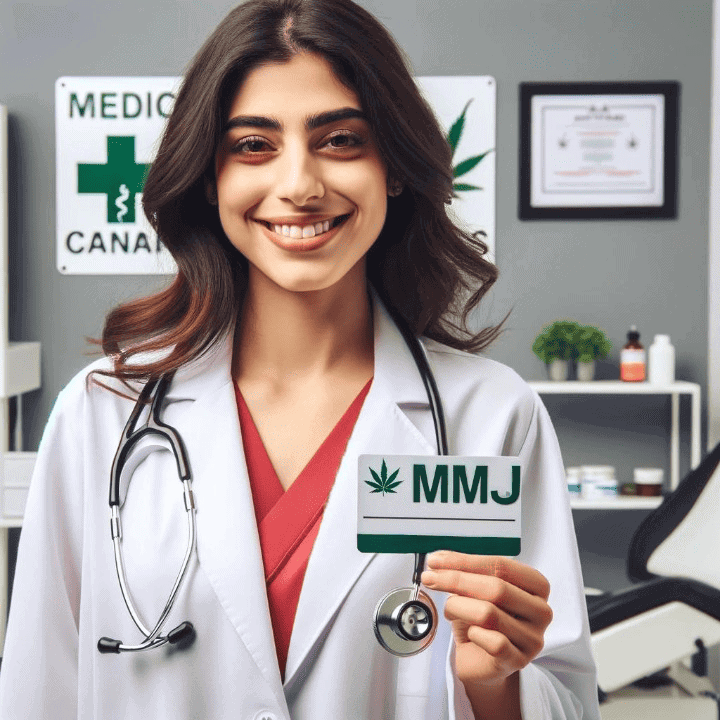
Patients in New York should renew their medical marijuana certification before it expires, typically on an annual basis. The renewal process involves:
It’s important to initiate the renewal process well in advance of the expiration date to ensure uninterrupted access to medical marijuana.
What Happens if a Patient’s Medical Condition Changes?
For patients using medical marijuana in New York, staying informed about the renewal process and understanding how to manage changes in their medical condition are key aspects of ensuring continuous and effective treatment.
Regular communication with healthcare providers and adherence to state regulations are essential for maintaining legal access to medical marijuana.
Navigating the world of medical marijuana in New York can be complex, but a range of support services and resources are available to help patients manage their treatment and stay informed about policy changes.
What Support Services are Available for Medical Marijuana Patients in New York?
How Can Patients Stay Informed About Changes in Medical Marijuana Policies?
Access to these support services and staying informed about policy changes are crucial for medical marijuana patients in New York. They ensure patients can effectively manage their treatment and navigate the legal landscape of medical marijuana use.
In conclusion, the landscape of medical marijuana in New York is a dynamic and evolving one, marked by a commitment to public health, safety, and social equity. The state’s comprehensive regulatory framework, guided by the Marijuana Regulation and Taxation Act, ensures that medical marijuana is accessible to those who need it while maintaining high standards of safety and quality control.
For patients, navigating the medical marijuana system in New York involves understanding the eligibility criteria, the application process for medical marijuana certifications, and the renewal procedures.
It’s also important for patients to be aware of the legal considerations regarding consumption and employment, and to utilize the various support services and resources available to them.
Staying informed about changes in medical marijuana policies is crucial, as the landscape continues to adapt and respond to new research, societal attitudes, and the needs of patients. The state’s approach reflects a balance between providing relief and therapeutic benefits to patients, and addressing broader social and economic considerations.
As New York continues to refine its medical marijuana program, it serves as a model for other states in terms of its regulatory rigor, focus on patient safety, and commitment to social justice.
For patients, healthcare providers, and policymakers alike, the ongoing development of medical marijuana in New York represents a significant step forward in the responsible integration of cannabis into healthcare and society.
https://cannabis.ny.gov/patients
https://www.mpp.org/states/new-york/
https://norml.org/laws/new-york-penalties-2/
https://cannabis.ny.gov/practitioners
https://cannabis.ny.gov/medical-cannabis
https://cannabis.ny.gov/medical-cannabis-program-faqs

A1 Marijuana Doctors is an online platform, that connects marijuana patients to marijuana doctors in their state.

A1 Marijuana doctors is an online platform that connects medical patients to medical marijuana doctors. We offer a quick & easy way to apply for a medical marijuana card in all legal states.
Social Links
Contact Us
Quick Links
Trusted By




This website does not sell medicine nor controlled substances. It is a network of doctors & nurse practitioners, not a pharmacy / dispensary.
Copyright ©2023 A1 Marijuana Doctors. All rights reserved.